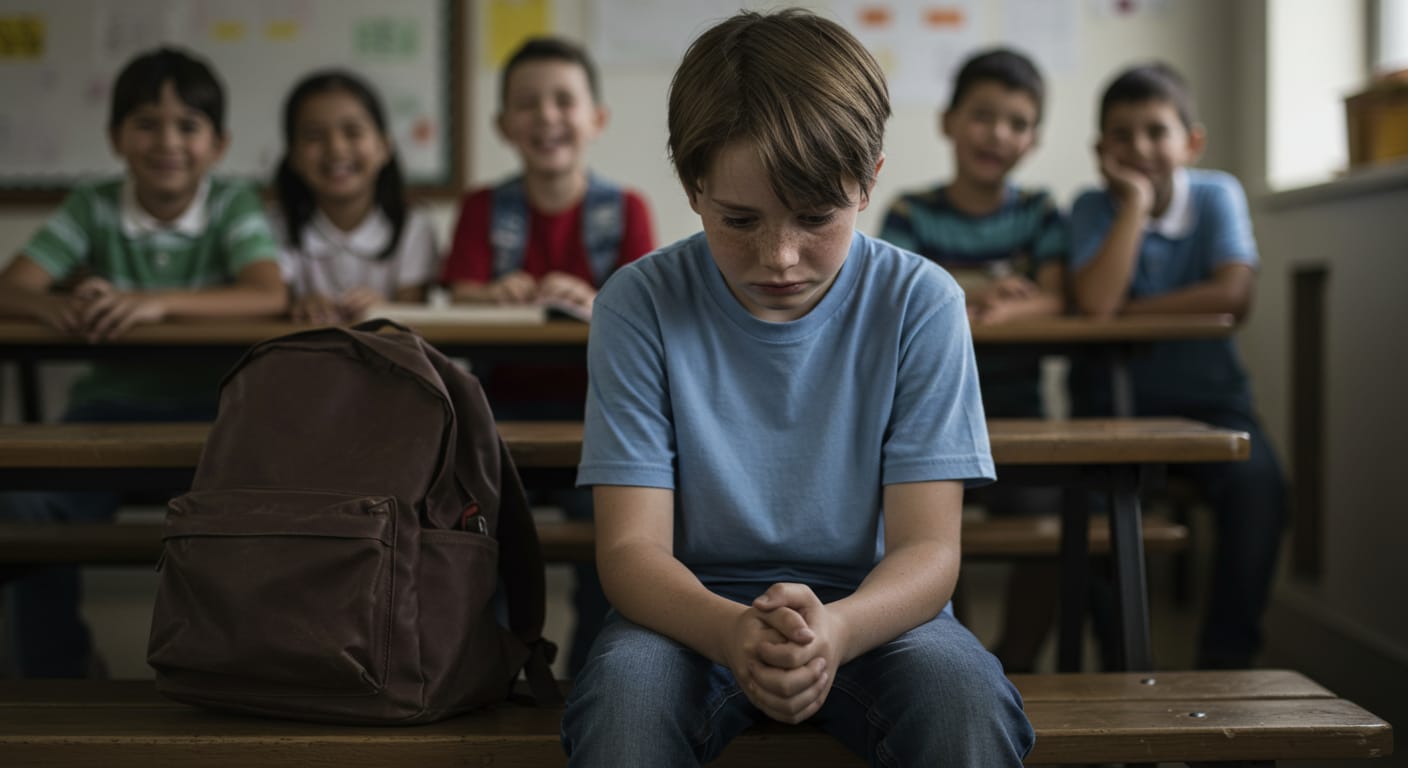Left Alone to Fend for Themselves
School can be rough. As if tests, homework, and the pressure to perform weren’t enough, classmates can sometimes make school feel like a battlefield. Bullying is serious. In one tragic case, 10-year-old Ashawnty Davis of Sunrise Elementary in Colorado died by suicide after a video of a school fight—allegedly involving a bully—surfaced online. Her parents believe it was a case of bullycide—suicide caused by bullying.
So what can parents do? The first step: teach your child how to respond to bullies—and how to talk to you about it.
When a School Tyrant Wants to Crush Their Spirit
Bullying isn’t always physical. It can be verbal—teasing, name-calling, and threats. It can also be social—spreading rumors, humiliating someone publicly, or deliberately excluding them.
“One’s dignity may be assaulted, vandalized, and cruelly mocked, but it can never be taken away unless it is surrendered.”
— Michael J. Fox
Bullying thrives on power imbalance. The bully exerts control while the victim feels powerless, unworthy, and isolated. And when bullying goes unaddressed, it can lead to depression, anxiety, and long-term trauma.
The Victim – What to Watch For
Sometimes, kids don’t speak up. They internalize the pain, thinking it’s their fault or fearing retaliation. Here are red flags to watch for:
-
Refusing to go to school or take the bus
-
Avoiding social interaction outside of class
-
Sudden sadness, anxiety, or withdrawal
-
Complaints of headaches or stomachaches
-
Expressions of worthlessness or self-blame
-
Drop in grades or interest in school
-
Talking or hinting about death or suicide
If You Suspect Bullying – Act, But Gently
Start with a conversation. Don’t pressure them. Ask about how things are going, observe their mood, and comment on behavior shifts. Avoid doing this right before or after school when they may already be on edge.
❌ What NOT to Do:
-
Don’t blame your child. Avoid questions like “Did you start it?” or “What did you do to them?” This makes your child feel judged or unsupported.
-
Don’t organize a direct meeting between the bully and your child or their parents. This often backfires, causing embarrassment or more fear.
✅ What You SHOULD Do:
-
Work on a plan with your child. Decide together how to respond—whether it’s walking away, having a comeback, or telling a trusted adult.
-
Involve a teacher or school counselor. Even if they didn’t witness the bullying, they might see patterns or signs in behavior.
-
Identify a trusted adult at school. Whether it’s a teacher, nurse, or guidance counselor, ensure your child has someone they feel safe talking to.
Bullying Can Cause Lasting Harm—So Be Their Safe Place
Bullying can lead to PTSD, social anxiety, self-harm, and suicidal thoughts. But the power of your love, presence, and advocacy cannot be overstated. By listening and believing them, you help them rebuild their self-worth—and show them they’re not alone.
With your support, your child can rise above bullying—and become resilient, confident, and emotionally secure.


